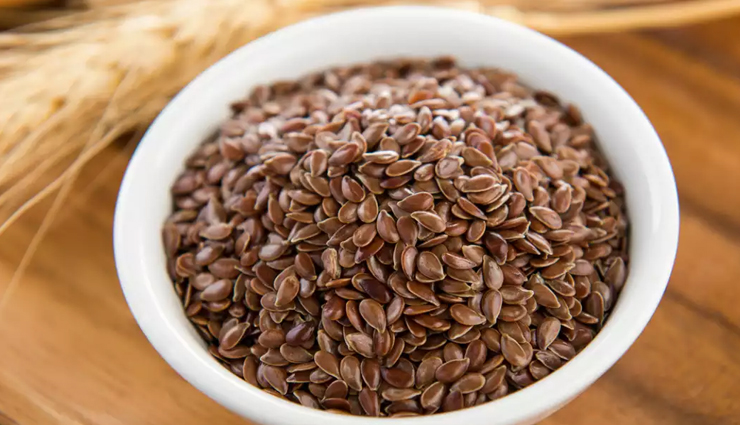- Home›
- Healthy Living›
- 6 Healthy Foods You Must In Third Trimester During Pregnancy
6 Healthy Foods You Must In Third Trimester During Pregnancy
By: Priyanka Maheshwari Thu, 01 June 2023 4:46:14

During the third trimester of pregnancy, it is crucial to prioritize a healthy diet to support both your baby's development and your own well-being.
The third trimester of pregnancy is the final stage, spanning from week 28 until the birth of your baby. It is a significant and exciting period as you approach the culmination of your pregnancy journey. During the third trimester, your body continues to undergo remarkable changes. Your abdomen expands further as your baby grows, and you may experience increased weight gain, backaches, and aching feet. You may also notice shortness of breath due to the upward pressure on your diaphragm. Hormonal changes can lead to symptoms such as heartburn, frequent urination, and swollen ankles.
Your baby goes through rapid growth and development in the third trimester. They gain weight, their organs mature, and their brain undergoes significant development. You may feel more pronounced movements as your baby grows and their space becomes more limited in the womb. The third trimester is a crucial time to prepare for labor and delivery. You might start attending childbirth education classes, where you learn about various birthing techniques, pain management options, and newborn care. It’s also common to create a birth plan and discuss it with your healthcare provider.
Regular prenatal check-ups become even more important during the third trimester. Your healthcare provider will monitor your baby’s growth, check your blood pressure, and perform tests to ensure both you and your baby are healthy. They may also discuss the signs of labor and provide guidance on when to contact them or go to the hospital. As you approach the end of your pregnancy, it’s normal to experience a range of emotions, including excitement, anticipation, and anxiety. It can be helpful to maintain a support system of loved ones, communicate your feelings, and engage in relaxation techniques or prenatal yoga to promote emotional well-being.
Here are some key considerations for maintaining a nutritious diet during this stage:

# Balanced Nutrition
Ensure that your meals include a variety of nutrient-dense foods. Aim for a combination of fruits, vegetables, whole grains, lean proteins, and healthy fats. This provides the necessary vitamins, minerals, and macronutrients for you and your growing baby.

# Iron-Rich Foods
As your blood volume increases, iron becomes even more important. Include iron-rich foods like lean red meat, poultry, fish, legumes, leafy greens, and fortified cereals. Consuming vitamin C-rich foods, such as citrus fruits or bell peppers, can help with iron absorption.

# Calcium Sources
Calcium is essential for bone development in your baby. Include dairy products like milk, cheese, and yogurt, or opt for fortified plant-based alternatives if you're lactose intolerant or follow a vegan diet. Leafy greens, tofu, and almonds are other good sources of calcium.

# Omega-3 Fatty Acids
These healthy fats aid in your baby's brain and eye development. Include fatty fish like salmon or trout, flaxseeds, chia seeds, and walnuts in your diet. If you can't consume fish or plant-based sources, consider omega-3 supplements after consulting your healthcare provider.

# Fiber-Rich Foods
Constipation can be common during pregnancy. Increase your fiber intake by consuming whole grains, legumes, fruits, and vegetables. This can help maintain regular bowel movements and alleviate discomfort.

# Hydration
Staying well-hydrated is essential during pregnancy. Drink plenty of water throughout the day to support digestion, circulation, and amniotic fluid levels. Avoid excessive caffeine intake and opt for water or herbal teas instead.
Remember, it's important to consult with your healthcare provider or a registered dietitian to ensure that your specific nutritional needs are being met during pregnancy. They can provide personalized recommendations based on your health and any specific dietary restrictions you may have





